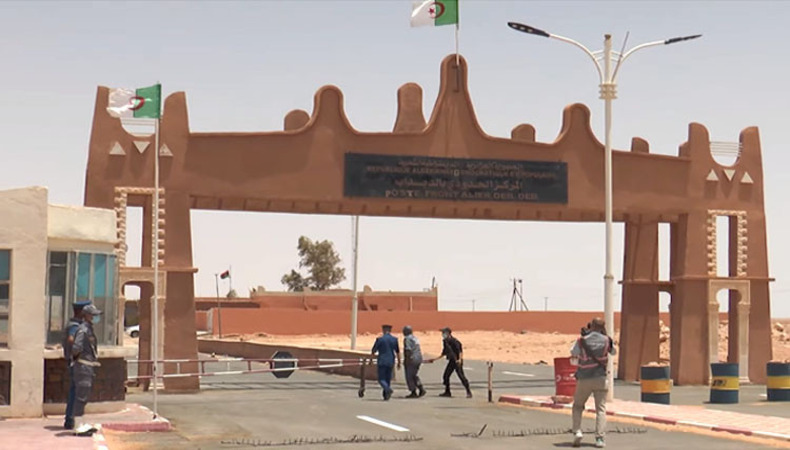Libya, Algeria to Reopen Border Crossing After 10 Years

Libya and Algeria are set to reopen the Ghadames-Debdeb border crossing on December 12 to facilitate the movement of citizens and trade between the two countries. This crucial border crossing will open after it was closed for nearly 10 years
The two sides announced the reopening after completing all technical, legal and regulatory procedures. The Ghadames-Debdeb border crossing has been closed since May 2014 because of the political turmoil and conflict in Libya. There were talks to open the border in 2021, but it was stalled. The commander of eastern Libya Khalifa Haftar had blocked the border with Algeria.
Located near the city of Ghadames in Libya, the Debdeb is considered one of the three most important land border crossings.
Libya and Algeria Relations
The two countries are working towards strengthening bilateral relations and establishing technical committees to look into potential areas of cooperation. By reopening the border crossing, Libya and Algeria want to ease the transit of commodities and business. The Tripoli Libyan government intends to ease citizen movement and revitalize direct commercial exchanges between Algeria and Libya bypassing the need for transit through Tunisia. It will bolster the economies of both countries, making way for new economic cooperation and joint investment opportunities.
Moreover, Algeria is supportive of Libya holding elections. Algerian Foreign Minister Ahmed Attaf reaffirmed Algeria’s commitment to supporting the stability and unity of Libya and backing any efforts to achieve consensus among its people in holding parliamentary and presidential elections.
Algeria and Libya are keen to maintain the tradition of political coordination and consultation, intensify joint efforts to enhance the path of bilateral cooperation in various fields.
Keep Reading
Libya Releases Four Hamas Members; What To Expect?
France Tells Lebanon Hezbollah to Back Off
Libya Headed Toward Elections
Meanwhile, Libya is preparing for elections. But the future of elections in Libya remains uncertain. Presently, the country is being run by two governments. The UN envoy to Libya Abdoulaye Bathily urged political leaders to create enabling conditions for Libyans to elect legitimate and accountable institutions. He urged Libyan leaders to come to alignment with the people’s attachment to unity, and desire for peace and stability.




